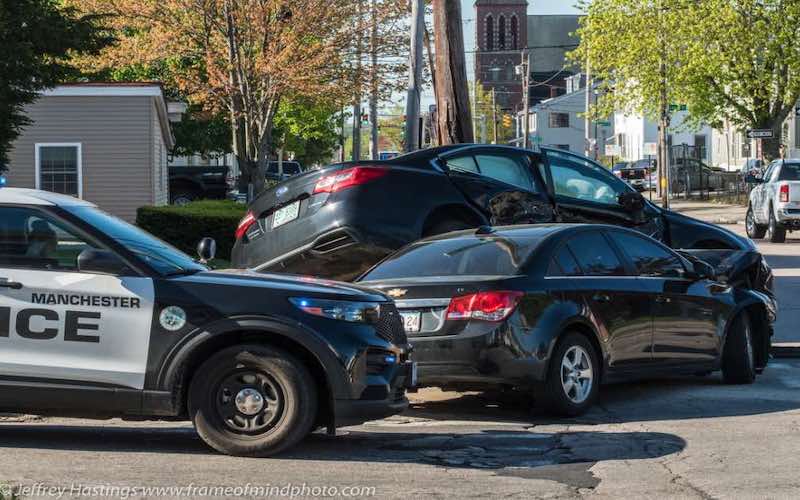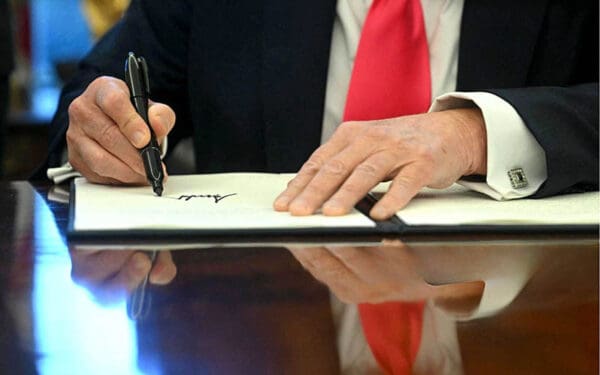
Poor design of Manchester streets make them unsafe for residents and drivers. Crashes like this one on Manchester's Beech Street have become all too common. Photo: Jeffrey Hastings/Frame of Mind Photo
Some downtown Manchester streets have become dangerous speedways over the last several months. Drivers are treating Maple, Beech, and Chestnut streets like highways, speeding through crowded neighborhoods and putting people at risk.
The design of these streets is to blame for this reckless behavior. Two-lane one-way streets encourage drivers to speed, and it’s time the City to redesign these streets to make them safer. In fact, city officials have already done this on those same roads north of Bridge Street. That process took just a year, and the neighborhood south of Bridge deserves the same quick action.
Unfortunately, the city has shown little interest in fixing this dangerous problem, as they’ve been “studying” the issue for over three years at this point. It’s worth mentioning that the streets in question are largely home to lower-income immigrant residents, and the roads that saw the quick redesign are filled with wealthier white residents.
It’s no secret that policies often overlook poor neighborhoods and communities of color, but it’s time this practice comes to an end. Fortunately, the community has taken notice of the dangerous conditions on these streets and is coming together to demand change.
Conservation Law Foundation brought together the Manchester NAACP, Queen City Bike, Don Quijote, Manchester Moves, and the Manchester Transit Authority to work together on a solution. All of these groups recognize the need to transform Beech, Chestnut and Maple streets into safe places for residents to walk, bike and play. Right now, these streets are so dangerous that the MTA won’t even run buses on them. Something needs to change.
That process got started last month with the MTA and Manchester Moves collaborating on a $250,000 grant application that could finally bring about some change. The money would cover planning for a redesign of the streets that have become highways.
To solve this problem, the number of traffic lanes on all of these streets need to be reduced. Then, officials can make more space for bikes, pedestrians, and public transportation. It’s time we prioritize people over cars, and this is the way we make it happen.
The fact that all of these groups came together to help solve this problem illustrates the strength of the Manchester community and the resolve to make our streets safer for everyone. The Manchester Transit Authority and Manchester Moves deserve immense credit for committing the initial match funding to this project. Now it’s time officials in city hall take note and commit to safe streets for all Manchester residents, not just the wealthier neighborhoods.
This post originally appeared in Manchester Ink Link.



